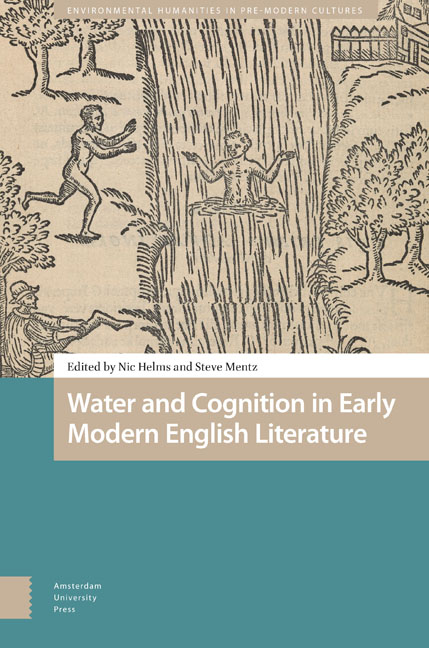Book contents
13 - Thinking with the Ocean as Decolonial Strategy : Memory, Loss, and the Underwater Archive in Shakespeare’s The Tempest
Published online by Cambridge University Press: 16 April 2024
Summary
Abstract
Representations of the ocean from early modernity attest to the fact that both the mythology and the materiality of the watery deep exert a disconcerting force in public culture. Recent explorations of oceanic thought have developed methodologies with which to trace histories of dispossession, through and with the ocean and its tides. This chapter considers what an oceanic imaginary offers Shakespearean scholars alert to the theater's capacity to confront histories of violence, enslavement, and dispossession. The ocean figures as a space of unsettling power and possibility in The Tempest, not least through the shadowy presence of Sycorax, whose “submergence” remains troubling and unexplained. A critical alignment with the ocean promises a more imaginative and nuanced interpretative practice for reckoning with histories of injustice.
Keywords: Oceanic thought, Early modern voyages, The slave shipwreck, Shakespeare's The Tempest, Sycorax
Recent explorations of oceanic thought have seen the development of methodologies with which to trace the legacies of histories of dispossession, through and with the ocean and its tides. These developments in cultural theory help to complicate the binaries associated with earlier iterations of postcolonial thought. The temporal and geographical delineations affirmed by familiar dichotomies, such as center/periphery, colony/metropole, and even colonizer/colonized, have not been able to account for the irreducible forms of domination, injustice and resistance that continue to impact lived experience across an unequal world. Nor have they necessarily accounted for the complex forms of implicatedness and entanglement in the aftermath of colonialism. A temporal framework that treats the event of colonial conquest as defining of the post-colonial future may seem to authorize the forgetting of histories of violence, paradoxically, through its linearity. Éduoard Glissant disavowed (a version of) postcolonialism for this reason, and insisted that “I am in a history that never stops.” By contrast, decolonial methodologies address the persistence of what Peruvian social theorist Aníbal Quijano first identified as “coloniality,” a phenomenon that goes beyond any historical timeline that tracks the events of colonization, per se. As Walter Mignolo insists: as “the darker side of Western modernity,” coloniality inheres in structures of thought that persist long after the historical events associated with colonization have taken place.
- Type
- Chapter
- Information
- Water and Cognition in Early Modern English Literature , pp. 283 - 302Publisher: Amsterdam University PressPrint publication year: 2024

